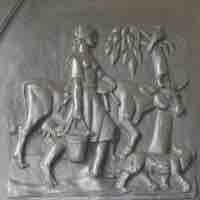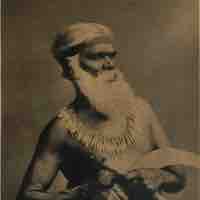Section 1
Culture and Society
By Boundless

Culture relates to nature (our biology and genetics) and nurture (our environment and surroundings that also shape our identities).

Culture is what differentiates one group or society from the next; different societies have different cultures.

A cultural universal is an element, pattern, trait, or institution that is common to all human cultures worldwide.

Culture shock is the personal disorientation a person may feel when experiencing an unfamiliar way of life in a new country.

Ethnocentrism, in contrast to cultural relativism, is the tendency to look at the world primarily from the perspective of one's own culture.
In the social sciences, material culture is a term that refers to the relationship between artifacts and social relations.
Non-material culture includes the behaviors, ideas, norms, values, and beliefs that contribute to a society's overall culture.